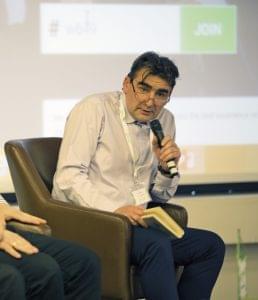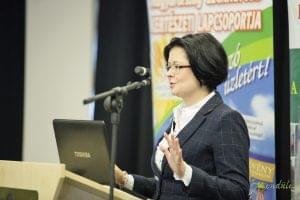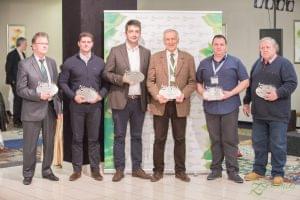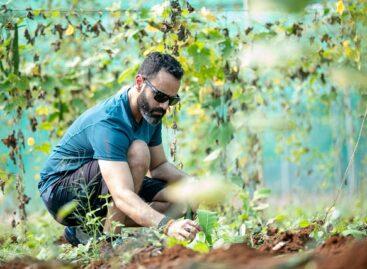Magazine: Digitalisation and cooperation: the future of the horticulture sector
 This year Szeged was the host of the annual Zsendülés conference, which was organised for the 4th time. Deputy state secretary Dr Zsolt Feldman told in his keynote speech: although fruit and vegetable consumption dropped in the last few years, the government’s market protection measures can play a role in motivating shoppers for buying. As part of another state programme, almost 560,000 pupils in 2,242 schools are served various fruits and vegetables 3-4 times a week. This year the government will spend HUF 6 billion on supporting growers’ cooperatives.
This year Szeged was the host of the annual Zsendülés conference, which was organised for the 4th time. Deputy state secretary Dr Zsolt Feldman told in his keynote speech: although fruit and vegetable consumption dropped in the last few years, the government’s market protection measures can play a role in motivating shoppers for buying. As part of another state programme, almost 560,000 pupils in 2,242 schools are served various fruits and vegetables 3-4 times a week. This year the government will spend HUF 6 billion on supporting growers’ cooperatives.

Mihály Péter
member
Kert-Ész Klub Magyarország Egyesület
Mihály Péter, a member of Kert-Ész Club Hungary Association (they organised the conference), opined that 2018 will be the year of development and investment in the horticulture sector. State secretary (responsible for agriculture and rural development) Zsolt Miklós Kis added that the Prime Minister’s Office has given a positive answer to 4,700 investment plans in the sector, granting HUF 98 billion to these projects. The state secretary revealed that the Hungarian Chamber of Agriculture (NAK) is studying how the tax system can be changed – the 27-percent VAT on fruits and vegetables hinders the development of the horticulture sector.

Anikó Juhász
director general
Agrárgazdasági Kutató Intézet
Anikó Juhász, director general of the Agricultural Economics Research Institute (AKI) spoke about the importance of precision farming. She underlined that the digital knowledge and skills of fruit and vegetable growers must be improved. Sándor Baja, managing director of Randstad Hungary Kft. revealed: Hungarian employees are among the most unprepared in the world when it comes to the challenges of digitalisation. By now the proportion of unskilled workers grew to 52 percent (15 years ago it was 28 percent).
Dr Miklós Csikai, president-CEO of Árpád-Agrár Zrt. told the story of the Szentes paprika brand and shared his professional experiences with the audience. It was new about this year’s Zsendülés conference that fruit growers had their own section, where they could discuss the future of Hungarian fruit farming, and they also had the chance to get inspiration for a renewal in the sector from the presentations of foreign speakers.

Zsendülés-prize 2018 winners (from left to right): Sándor Kocsis S. (in the name of Zoltán Móra),
Attila Veres, Péter Kelemen, Dr. Miklós Csikai, Zoltán Nagy and György Ungerbauer
(they are not on the photo: Hegedűs brothers, Zoltán Móra)
On the second day of the conference Rita Csillag-Vella, client service director of GfK Hungária informed participants that households spent 28 percent of their FMCG budget on fresh products (baked goods, fruits and vegetables, meat) in 2017. It is bad news that a little less money was spent on fresh fruits and vegetables than in 2016.Consumers like to buy these products in hypermarkets, but the position of discount stores keeps strengthening. Culinary psychologist Dr Attila Forgács gave a presentation on which factors influence the decision making of shoppers when buying. //
Related news
Battery-powered garden tools continue to gain popularity
🎧 Hallgasd a cikket: Lejátszás Szünet Folytatás Leállítás Nyelv: Auto…
Read more >–15–20 degrees Celsius night frost: fruit trees can mostly withstand it in winter, the risk increases with cooling after the weather has cooled down
🎧 Hallgasd a cikket: Lejátszás Szünet Folytatás Leállítás Nyelv: Auto…
Read more >NAK makes its free application writing service available to young farmers
🎧 Hallgasd a cikket: Lejátszás Szünet Folytatás Leállítás Nyelv: Auto…
Read more >









